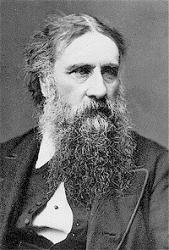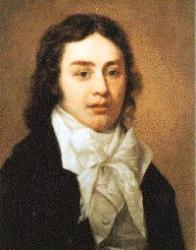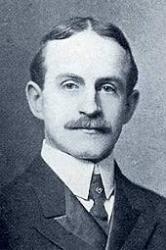
1840 - 1923 Author of "From heart to heart, from creed to creed" in Hymns of the Spirit for Use in the Free Churches of America Gannett, William Channing, M.A., s. of Dr. Ezra Stiles Gannett, was b. at Boston, March 13, 1840, and educated at Harvard College, 1860, and the Divinity School, Cambridge. Entered the Unitarian Ministry in 1868, and after filling several pastorates he became Pastor of the Unitarian Church at Rochester, N.Y., 1889. Mr. Gannett's hymns, mainly written for special occasions, were included in great part in The Thought of God in Hymns and Poems, Boston, 1st Series 1885,2nd Series 1894,
the combined production of F. L. Hosmer (q.v.) and himself. Of Mr. Gannett's hymns the following are in common use:—
1. Bring, 0 morn, thy music [God Everlasting.] Written in 1893, and printed in A Chorus of Faith, being an account and resume of the Parliament of Religions, held in Chicago, 1893. Included in The Thought of God, 2nd Series, 1894, and again in several hymnals.
2. Clear in memory's silent reaches. [Memory.] Written in 1877 for a Free Religious Assoc. Festival, and published in The Thought of God, 1st Series, 1885.
3. Prom heart to heart, from creed to creed. [Faith.] Written in 1875 for the 150th anniversary of the First Religious Society in Newburyport, and given in The Thought of God, 1ist Series, 1885. Usually st. ii. is omitted.
4. He hides within the lily. [Divine Providence.] "Consider the lilies, how they grow." Written in 1873, and printed for use at the Free Religious Assoc. Festival, May 30th, 1873. Published in The Thought of God, &c, 1st Series, 1885, in 4 stanzas of 8 lines. The most widely used of the author's hymns.
5. I hear it often in the dark. [The Voice of God.] Written at Milwaukee, in 1870, and published in The Thought of God, &c, 1st Series, 1885. Sometimes it begins with st. iii., "0 God within, so close to me," as in Hymns for Church and Home, Boston, 1895.
6. Praise to God and thanksgiving. [ Harvest.] Written in 1872 for a Harvest Festival at St. Paul's, Minn., of which he was then Pastor, and included in The Thought of God &c, 1st Series, 1885. in the Boston Pilgrim Hymnal, 1904, it begins "Praise to God, and thanks we bring."
7. Sleep, my little Jesus. [ Christmas Carol.] Written for the Sunday School, St. Paul's, Minn., in 1882, and given in The Thought of God, 2nd Series, 1894, as "Mary's Manger Song."
8. The Lord is in His holy place. [Dedication of a Place of Worship.] Written for the Dedication of the Rev. C. W. Wendte's Church, Chicago, April 24, 1873, and pub. in The Thought of God, &c, 1st Series, 1885. It is one of the most popular and widely used of the author's hymns.
9. The morning hangs its signal. [Morning.] This is dated by the author "Chicago, July 30, 1886," and printed in Love to God and Love to Man, being No. 28 ot the Chicago "Unity Mission" series of hymns (N.D.). Also included in The Thought of God, &c, 2nd Series, 1894. Although in some sense a Morning hymn, it is adapted for use in Advent. It is usually known as “The Crowning Day."
10. The Truth is the Voice of God. In the "Unity Mission" Series, No. 28 (see above), this is given as No. 33, with the title "Truth and Righteousness and Love," in 4 stanzas of 4 lines and a refrain of 4 lines.
These annotations are based upon manuscript notes kindly supplied by the author. The use made of Mr. Gannett's hymns shows that their poetic beauty and loving sympathy with all things beautiful and pure, are widely appreciated in America and to a limited extent in Great Britain also.
--John Julian, Dictionary of Hymnology, New Supplement (1907)
William Channing Gannett





